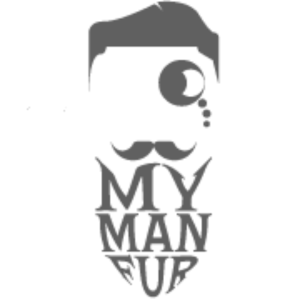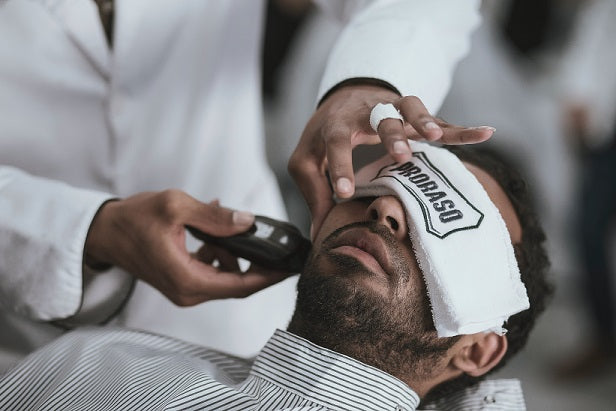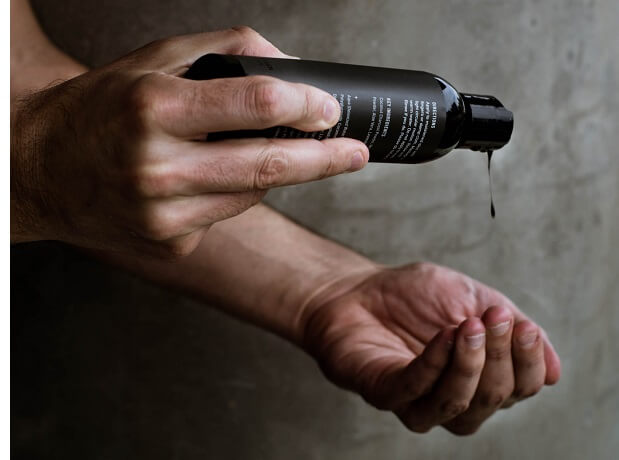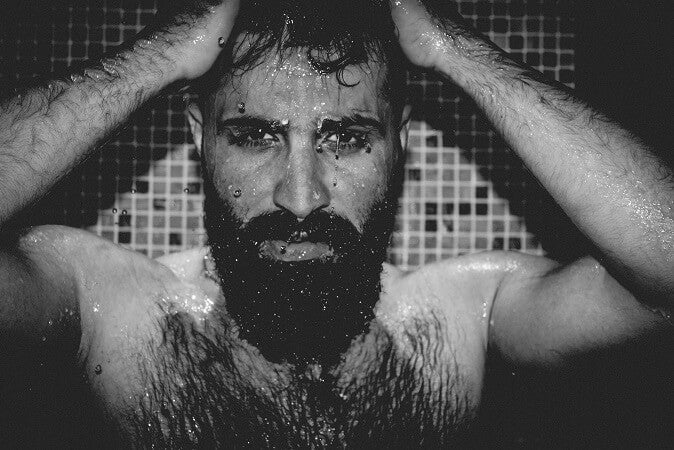If you've always been envious of men who can rock a thick, full beard, but have struggled to achieve that look yourself, you're not alone. While some guys seem to have all the beard-growing luck, others struggle to get past patchy, scraggly whiskers. But fear not, there are ways to stimulate your hair growth and enhance your natural beard potential. In this blog post, we'll share some tips on how to grow a thicker beard and achieve that lush, masculine look you've always wanted.
Genetics Play a Role

Let's get this out of the way right off the bat - genetics play a big part in how thick and full your beard will be. Unfortunately, there's not much you can do about that. However, don't despair just yet! While genetics can't be changed, there are still plenty of things you can do to make the most of what you have.
First, take a look at your family history. If the men in your family tend to have patchy beards or just can't seem to grow a thick one, chances are you'll have similar struggles. On the other hand, if your dad, grandpa, and uncles all sport impressive facial hair, you're probably in luck.
But even if your genetics don't seem to be in your favor, don't give up hope. With the right techniques and products, you can still grow a beard that's thicker and fuller than you might expect. It just may take a little extra effort.
So, while you can't change your genetic makeup, you can take control of your grooming routine. In the following sections, we'll dive into some tips and tricks for growing a beard that looks fuller and more luscious, no matter what your genetics may be.
Start with a Clean Slate
If you're serious about growing a thicker beard, the first step is to start with a clean slate. This means that you should shave your existing beard and allow it to grow back from scratch. It might be tempting to skip this step, but it's crucial if you want to grow a lush and healthy beard.
When you shave your beard, you're getting rid of all the dead skin cells, dirt, and oils that have built up on your skin. This makes it easier for your beard to grow in thicker and healthier. Additionally, when your beard starts growing back, it will do so evenly, which will give you a better foundation for a thicker and fuller beard.
Before you start shaving, make sure that you have the right tools. A good quality razor and shaving cream will make the process easier and help prevent irritation and ingrown hairs. It's also important to remember to shave in the direction of hair growth, and to rinse your razor frequently.
Once you've shaved, it's time to be patient. It might take several weeks for your beard to grow back fully, so don't get discouraged if you don't see results right away. In the meantime, take care of your skin by washing it regularly and using a gentle moisturizer to prevent dryness and itching.
Starting with a clean slate might seem like a small step, but it can make a big difference in the overall health and thickness of your beard. So, if you're serious about growing a beard, don't skip this crucial first step.
Invest in the Right Products
While genetics are the foundation for a thicker beard, the right products can help enhance your beard’s growth potential. It's important to invest in products that nourish your beard, keep it moisturized and help it grow healthy. Here are some essential products that will help you achieve a thicker, lusher beard:
- Beard oil – The best beard oils contain essential oils like jojoba, argan, and grapeseed oil which are rich in nutrients that promote healthy beard growth. Applying beard oil will also prevent skin irritation and reduce dandruff. To use, simply apply a few drops to your beard and massage it in.
- Beard balm – Similar to beard oil, beard balm helps to nourish and hydrate your beard. The difference is that it also provides hold and styling benefits. Apply a small amount to your beard, working it in from root to tip.
- Beard shampoo – Beard shampoo is specifically designed for facial hair, so it’s gentler and won’t dry out your skin. It’s important to clean your beard regularly to keep it healthy and free from dirt, sweat and bacteria. Use a dime-sized amount, work it into a lather and rinse well.
- Beard comb/brush – A comb or brush will help you keep your beard in place and stimulate the hair follicles, promoting hair growth. Choose a comb or brush made of natural materials, like boar hair or wood like the punishers beard comb.
- Beard vitamins – These supplements contain vitamins and minerals that support healthy beard growth, such as B vitamins, biotin, and zinc. While not necessary, they can be beneficial to help improve your overall beard health.
Remember, investing in the right products won’t magically transform your beard overnight, but consistent use can help your beard grow stronger, thicker and healthier. Be sure to choose products that suit your skin type and beard needs, and use them regularly as part of your beard care routine.
Be Consistent with Your Routine
Growing a thick beard requires dedication and commitment. You need to stick to a grooming routine - with a good grooming kit, that helps stimulate hair growth while keeping your beard healthy. Here are some tips to help you stay consistent with your routine:
- Establish a daily grooming routine:
Aim to clean your beard at least twice a day. Use a gentle cleanser that won't strip your hair of its natural oils. After cleaning, apply a beard oil or balm to hydrate and nourish the hair.
- Invest in the right tools:
Get yourself a high-quality beard brush or comb that can detangle knots and distribute products evenly throughout your beard. Additionally, consider investing in a good beard trimmer to keep your beard looking neat and tidy.
- Keep up with regular trims:
Trimming your beard regularly helps to remove split ends and promote healthy growth. Aim to trim your beard every two to three weeks. However, be careful not to over-trim or cut too much of your hair off.
- Stay committed to your grooming routine:
Growing a thicker beard is a process that requires patience and dedication. Stick to your grooming routine even when you don't see results immediately. It can take several weeks or even months to see a noticeable difference in the thickness of your beard.
By staying consistent with your grooming routine, you can ensure that your beard is healthy, nourished, and growing to its fullest potential. Remember, growing a thick beard takes time, so don't get discouraged if you don't see results right away. Stick to your routine, and you'll eventually achieve the lush, thick beard you desire.
Don't Forget about Diet and Exercise

It's not just about the products you use or the routine you follow – what you put into your body can also affect the growth of your beard. Eating a healthy, balanced diet rich in protein, vitamins, and minerals can provide your body with the nutrients it needs to produce healthy, strong hair follicles. Incorporate foods like eggs, nuts, and leafy greens into your diet to give your beard a boost.
In addition to diet, exercise can also play a role in beard growth. Regular physical activity can improve blood circulation and increase testosterone levels, which can lead to a thicker beard. So, make sure to stay active and hit the gym a few times a week to help promote beard growth.
Ultimately, growing a thicker beard requires a combination of factors, including genetics, a consistent grooming routine, the right products, and a healthy lifestyle. By taking care of yourself both inside and out, you can achieve the lush, thick beard of your dreams.
Be Patient
One of the most important things to keep in mind when trying to grow a thicker beard is that it takes time. You won't see results overnight, so it's important to be patient and stay committed to your routine. It may take a few weeks or even months for your beard to reach its full potential.
During this time, it's important to resist the urge to shave or trim your beard too often. Let it grow and fill in naturally, without interference. If you're feeling discouraged, remember that many men experience patchy growth or uneven thickness at first. This is normal, and it will usually even out over time.
While waiting for your beard to grow thicker, focus on keeping it healthy and well-maintained. Use high-quality products, like beard oil or balm, to keep the hair moisturized and nourished. Brush or comb your beard regularly to help stimulate growth and keep it looking neat.
Ultimately, growing a thicker beard requires a combination of patience, dedication, and the right tools and products. Stick with it, and before you know it, you'll be rocking a lush, thick beard that makes a statement.



